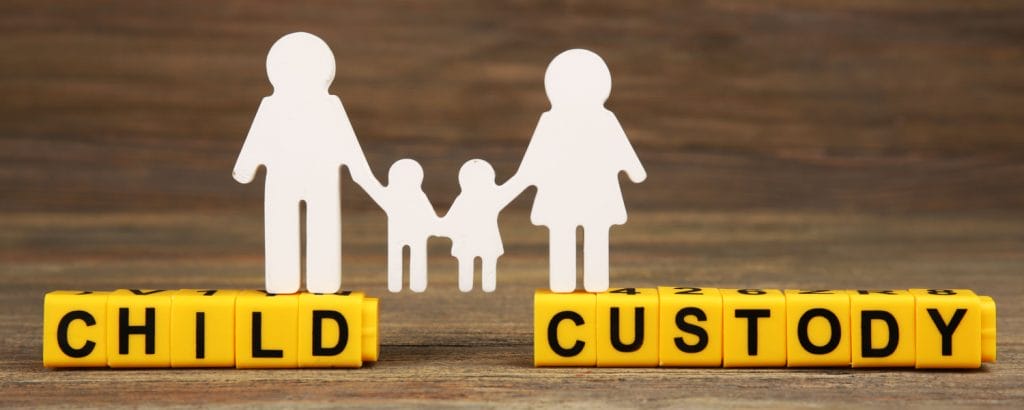Child custody battles can be emotionally charged and legally complex affairs. When parents decide to separate or divorce, their primary concern should always be the well-being of their children. Child support is a critical component of this concern, as it ensures that both parents share the financial responsibility of raising their children. But what happens if one parent fails to meet their child support obligations? Can you lose custody for not paying child support? In this article, we’ll delve into this sensitive and significant issue.

Understanding Child Support
Child support is a legal obligation that parents have to provide financial support for their children’s upbringing. It’s typically determined by state guidelines, (in Illinois child support is governed by 750 ILCS 5/505) taking into account factors like each parent’s income, the number of children involved, and other relevant expenses. Parents can also make arrangements themselves in mediation. Child support aims to ensure that children’s basic needs, such as food, clothing, housing, education, and healthcare, are met. You can also check out the Illinois Child Support Estimator for an estimate on what your payment might be.
The Consequences of Not Paying Child Support
Failure to meet your child support obligations can result in various legal consequences, which can ultimately impact your child custody arrangement. Here are some of the potential consequences:
Legal Action
If you consistently fail to pay child support, the custodial parent can take legal action against you. This may involve filing a motion for enforcement with the family court. When this happens, the court will review your case and can take several actions to enforce child support orders.
Wage Garnishment
One of the common enforcement methods is wage garnishment. The court can contact your employer to set these garnishments up. Having a garnishment in place means that a portion of your income is automatically deducted from your paycheck and sent directly to the custodial parent. This ensures that child support payments are made consistently.
Suspension of Driver’s License
Many states have laws that allow the suspension of your driver’s license if you fall behind on child support payments. This can make it difficult for you to commute to work and fulfill other responsibilities, ultimately affecting your financial stability. In Illinois you can risk losing your license if you are more than 90 days late on child support payments. Check the laws in your state to learn the full extent of the consequences of missed child support payments in your state.
Property Liens
In some cases, the court may place a lien on your property, such as your home or vehicle, to secure unpaid child support. This means you cannot sell or transfer ownership of these assets until the child support debt is satisfied. Leins are typically placed on items worth a large amount.
Contempt of Court
If you continue to neglect your child support obligations despite court orders, you may be held in contempt of court. Contempt of court can result in fines, probation, or even jail time, depending on the severity of the situation. To learn more about contempt charges check out “How to Beat Contempt of Court for Child Support in Illinois.”
Impact on Credit
Unpaid child support can also negatively impact your credit score. If your credit score plummets, it can affect your ability to secure loans, credit cards, or housing in the future.
Relationship Between Child Support and Custody
Now, let’s address the central question: Can you lose custody for not paying child support?
Child support and child custody are generally considered separate legal issues. Courts typically aim to make custody decisions based on the child’s best interests. While non-payment of child support can lead to various legal consequences, it is not an automatic reason for losing custody. However, it can indirectly affect custody decisions in some situations.

Impact on Custody Determination
When making custody decisions, courts consider various factors, including each parent’s ability to provide a stable and nurturing environment for the child. A parent who consistently fails to meet their financial obligations may be seen as less responsible, potentially influencing the court’s decision to give them more parenting time.
Proving Unfitness
In extreme cases, repeated and willful failure to pay child support may be used as evidence of a parent’s unfitness to care for the child. This could result in a change of custody, with the non-paying parent receiving less parenting time or visitation rights. It is also important to remember that if you are struggling to pay basic child support, then the court may find you cannot provide proper care to the child if you were to have more custody, or full custody.
Cooperation and Communication
Parents who can effectively communicate and cooperate with each other are more likely to share custody. Failure to meet child support obligations can strain the relationship between parents, making it difficult to maintain a shared custody arrangement.
Modification of Custody Orders
If a parent’s financial situation has changed significantly, they can request a modification of the custody order. This might be necessary if they are struggling to meet their child support payments due to job loss or other unforeseen circumstances. Courts will consider the child’s best interests when deciding whether to modify custody arrangements.
To learn more about child support and child custody agreements check out “Why Do I Pay Child Support With 50/50 Custody in Illinois?”

Conclusion: Can You Lose Custody for Not Paying Child Support?
While non-payment of child support can have serious legal consequences, including wage garnishment, property liens, and even potential jail time, it does not automatically result in losing custody of your child. Custody decisions are primarily based on the child’s best interests, and factors such as a parent’s ability to provide a stable and nurturing environment are weighed more heavily.
However, consistent failure to meet child support obligations can affect the overall dynamic between parents, potentially influencing custody arrangements indirectly. Intentional non-payment of child support can make a parent seem unfit, which is never good when you are fighting for custody of your child. It’s crucial for both parents to prioritize their child’s well-being and work together to provide the support and care their child needs, both emotionally and financially. If you’re facing challenges related to child support or custody, it’s advisable to consult with an experienced family law attorney who can provide guidance and representation tailored to your specific situation.
MEET WITH AN ILLINOIS FAMILY LAW ATTORNEY TODAY
The Family Law attorneys at Koth Gregory & Nieminski understand that your family is the top priority, which is why we offer SAME-DAY APPOINTMENTS. If you need a divorce or other family law services, you can schedule your first meeting through our online appointment calendar. We look forward to meeting you.
Disclaimer: This article (Can You Lose Custody for Not Paying Child Support?) may contain information that is outdated as Illinois law continuously evolves. Meeting with an experienced family law attorney is the best way to ensure you are receiving the most current information answering the question Can You Lose Custody for Not Paying Child Support?

Published by Dustin Koth on July 19, 2024
